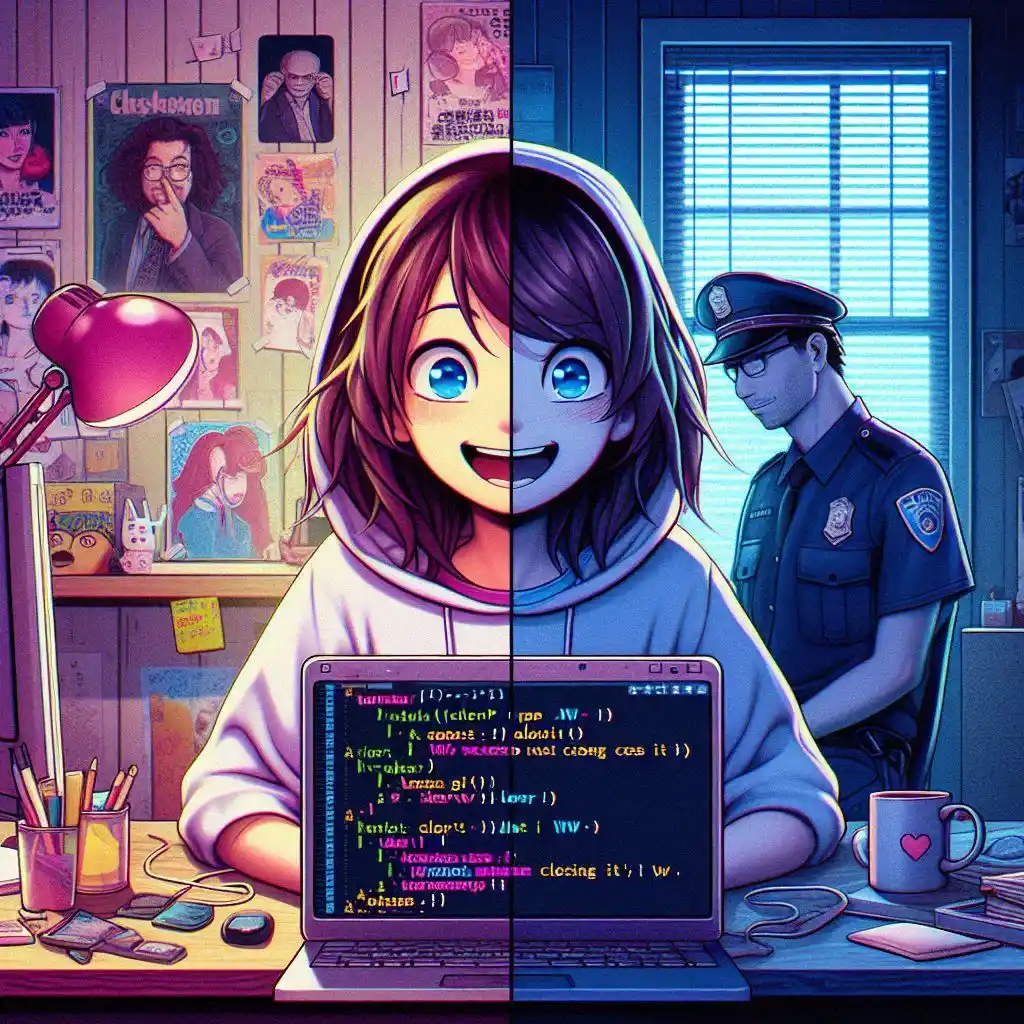In March 2019, a 13-year-old girl from Kariya, Japan, faced legal action for sharing a JavaScript code that caused an infinite loop of alert pop-ups, effectively rendering web browsers unresponsive. This prank involved a simple script that repeatedly triggered alert messages, making it challenging for users to close the dialog boxes, especially on mobile browsers.
The girl’s actions were deemed a violation of Japan’s laws against distributing malicious programs, leading to her being charged by local authorities. Investigations extended beyond the young student; the police also searched the homes of other individuals suspected of sharing the same code, including a 47-year-old man from Yamaguchi. Wikipedia
Ethical Implications of Coding Pranks and Their Potential Legal Consequences – JavaScript infinite alert prank lands 13-year-old Japanese girl in hot water
Coding pranks, while often intended for humor, can have unintended ethical and legal ramifications. Such actions may infringe upon users’ rights to privacy and disrupt their digital experiences, leading to potential harm. From an ethical standpoint, these pranks can violate individuals’ autonomy and trust in digital platforms. Legally, even seemingly harmless pranks can be classified as cyber offenses, resulting in serious consequences for the perpetrators. Institute of Data
Classification and Penalties for Minor Cyber Offenses Across Different Countries – JavaScript infinite alert prank lands 13-year-old Japanese girl in hot water
The classification and penalties for minor cyber offenses vary significantly across countries:
-
United States: Cyber offenses, including unauthorized access and distribution of malicious code, are subject to federal laws with penalties ranging from fines to imprisonment.
-
United Kingdom: The Computer Misuse Act criminalizes unauthorized access to computer systems, with penalties including fines and imprisonment.
-
Japan: Amendments to the Penal Code have been made to address cybercrimes, with penalties that can include imprisonment and fines. UNODC
These variations highlight the importance of understanding local laws and regulations related to cyber activities.
a. Explore the role of education in promoting ethical coding practices among youth.
b. Investigate the effectiveness of international treaties in harmonizing cybercrime laws globally.

